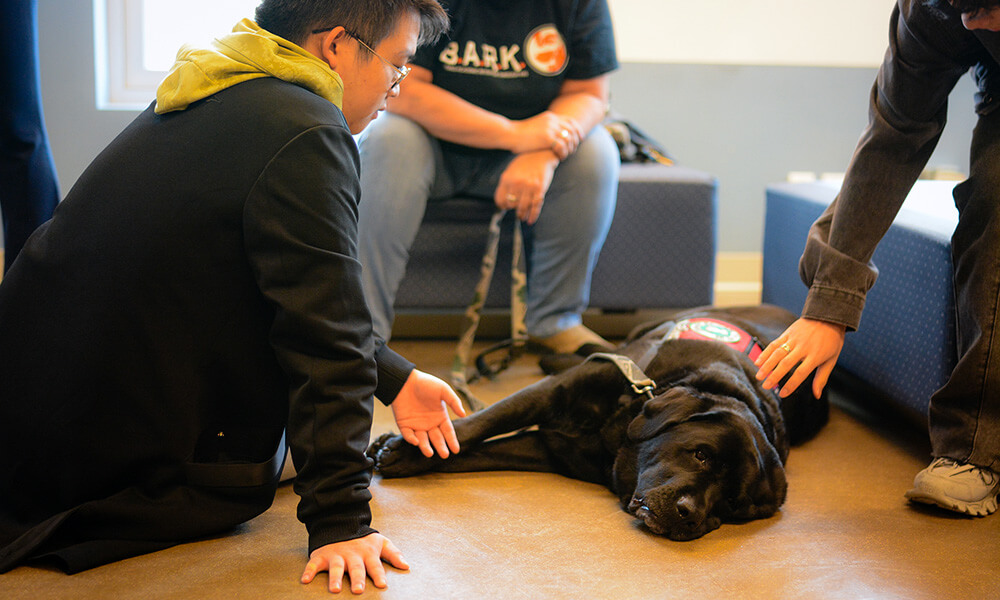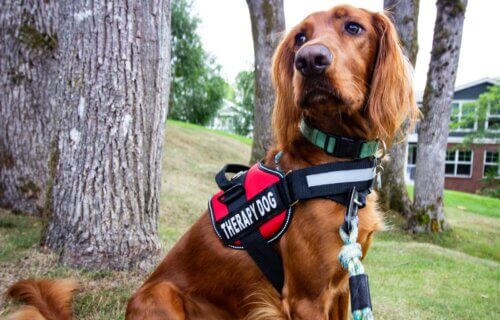OKANAGAN, British Columbia — Who doesn’t love a friendly puppy bringing them cuddles and smiles? While a dog’s love and support might seem universal, researchers in Canada say it’s actually been up for debate whether therapy dogs are effective for everyone. Now, a recent study is finally answering the question, finding that support dogs really do improve the well-being of men, women, and non-binary individuals equally.
The reason there has been some confusion about the effectiveness of support animals is that most dog therapy programs have a disproportionate number of women in them. This left a team at the University of British Columbia wondering if men and those identifying with another gender actually receive the same level of comfort from a support dog.
“Previous research has explored if it works and how it works, but not who it works for,” says Dr. John-Tyler Binfet, an Associate Professor in UBC Okanagan’s School of Education and Director of Building Academic Retention through K9s (BARK). “This was one of the first studies that examined whether canine-assisted interventions work equally well for varied genders.”

A total of 163 students took part in this experiment. Each person self-selected their gender group and then reported on their feelings of well-being before the therapy sessions began. This included telling researchers about their self-perceptions of campus and social connectedness, happiness, optimism, stress, homesickness, and loneliness. The group was 49 percent women, 33 percent men, and 17 percent identifying as non-binary or other.
The students participated in 20-minute therapy sessions with the support dogs and their handlers. They then filled out a post-session survey, measuring those same feelings of well-being again. Results reveal that therapy dogs contribute to a significant increase in feelings of well-being, lowering levels of homesickness, stress, and loneliness. Importantly, the team found that this effect was significant regardless of the participant’s gender — showing that dogs have a universally positive effect on our mental health.
“In light of previous studies that note participants were predominantly women, our sampling of men, genderfluid and two-spirit participants furthers our understanding that the efficacy of these interventions does not appear to be gender dependent,” Dr. Binfet concludes in a media release. “The vast majority of responses showed that the dogs helped the students feel and experience something positive regardless of their gender.”
The research, published in the journal CABI Human-Animal Interactions, was supported by the BARK program.
You might also be interested in:
- Best Therapy Dogs: Top 7 Supportive Breeds Most Recommended By Experts
- Most Affectionate Dogs: Top 7 Breeds Most Recommended By Experts
- Best Dogs For Emotional Support: Top 5 Therapeutic Pups, According To Experts

